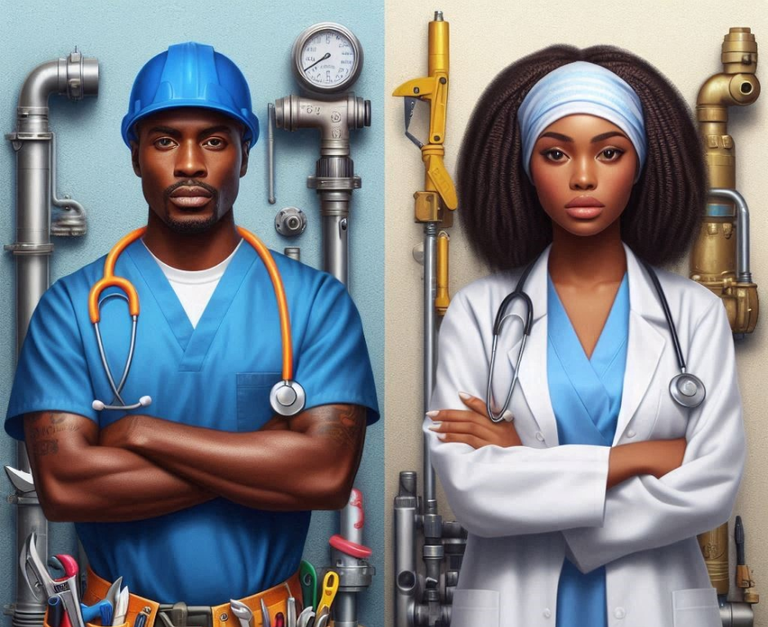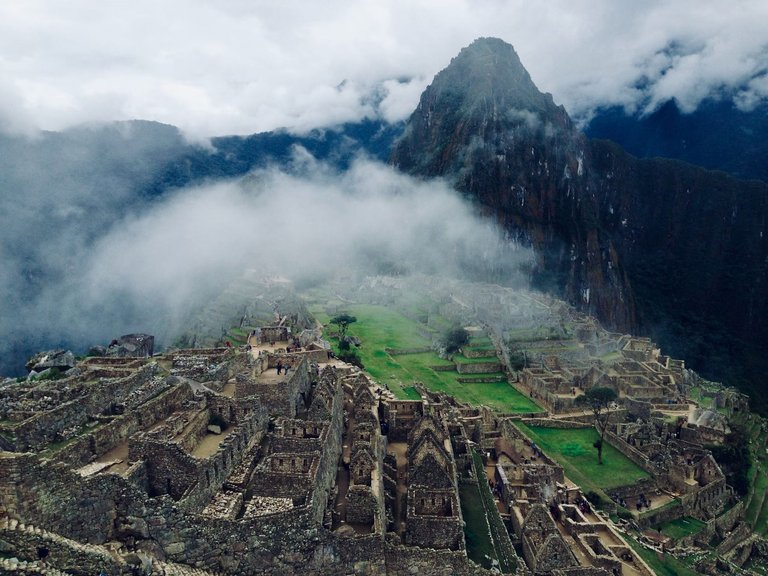
Source
Why hello there! I'm Dr Ebingo Lovet Kigigha a medical doctor and a person who is supposed to be pissed by the title of the post. stories like this tend to anger other doctors because it's against how the world sees them.
Why am I writing this story? Because some people don't know how we got here and confer special abilities to unmerited medics. Medical doctors are brilliant people but brilliant people are just people.
So, I am humanising medical doctors. Not every progress in health care can be traced back to a doctor, sometimes you have to give credit where credit is due and take it away when it's not the case.
Doctors have treated cancer, we bring hope to this dark world. Especially now that medical practice has been refined. Today, we can pass cameras into the body and carry out procedures that are used to cause the patient a prolonged hospital stay, now they are merely day procedures that we do and in no time, the patient goes home.
Medicine has progressed to the point that patients suffering from neuromuscular conditions that take away the patient's ability to talk can communicate. The neural link is trying to give people sight. Some of the things that we see happening all around the world are truly breathtaking and doctors are either fully or in part to be thanked.
In the past doctors have been reluctant to refinement just like every group that the world benefits from today. Science has reasons to be slow, for one thing, if we move too suddenly, we might sacrifice what works on the altar of progress.
Sometimes, however, it is just the case that doctors were not involved and they did not bring about the progress.
This doesn't mean that doctors should not be given respect in society, it's more so that maybe plumbers deserve a little bit more respect. Maybe we all should carry ourselves with some level of pride for the work that we do who knows your job might be found to hold special powers.
Around 4000 Before Christ Era

Source
The Mesopotamians were the first documented to have conceptualised civilisation. Within this ancient Southwest Asian settlement was a group of people who developed their own written language, wheel, plough, chariots and also their own irrigation system.
Channelling their water waste and rain into wells was not something that just came easily to the minds of that time. Made from clay these channels were not designed to last.
Somewhere around 2000 BCE, were the Indus Valley Civilization that had more sophisticated drainage systems for their sewage that took waste into gutters around its streets.
In ancient Greece, there were examples of sewage systems that carried their excrement with flushing systems that helped get rid of their waste.
These developments had nothing to do with medical practice it was tradition much like not shaking people with the left hand. There was no sophistication to the knowledge other than the fact that this was the way of the people and it had to be practised or else there would be consequences.
Even though there was no deeper knowledge the people of ancient times knew what quality water meant. Words like spring and wells were used to express the fact that they knew to an extent what safe water meant.
The concept of being a plumber had already started taking its course in medieval times. Those who worked with lead pipes known as "plumbum" were known as plumbers. This was already established before the medical profession was properly constructed.
Waterborne Infections
Germ theory marked the biggest event in modern medicine and gave rise to what we know to practise now. There was no logic behind separating faeces from drinking water. It was simply done because it was the right thing to do that was passed down from generation up until the 19th century.
The story behind germ theory being adopted could be the saddest story of all in medical practice. It followed a doctor realising that patients were dying in delivery wards led by doctors and less so in maternities led by midwives.
His theory was dispelled and his probable neurosyphilis-fueled insistence led to his eventual demise at the hands of medical doctors.
After the death of Dr. Ignaz Semmelweis the ideas that would give rise to the the germ theory were born.
Today we know that microorganisms are responsible for infectious disease and we can even see the organisms that are causing the problem.
We can now thank the blue-collar workers who separated water from vibrio cholera long before we could describe its signs and symptoms and carry out investigations to confirm its presence.
Even now in different hospitals around the world, we see fragments of cases of people stooling and vomiting and in very severe cases people still die of dehydration but imagine how bad it would be if we hadn't started separating clean and unclean with no regard to the science behind it?
Maybe it would be trillions of deaths or zillions and a much smaller world population.
So next time when you look at a toilet and you flush your poop down the drain, think about what life would be without the everyday plumber lying down and fixing pipes for a living.
We all can learn to respect one another if we realise that those who handle faeces for a living can play such an instrumental part in the grand scheme of things.


